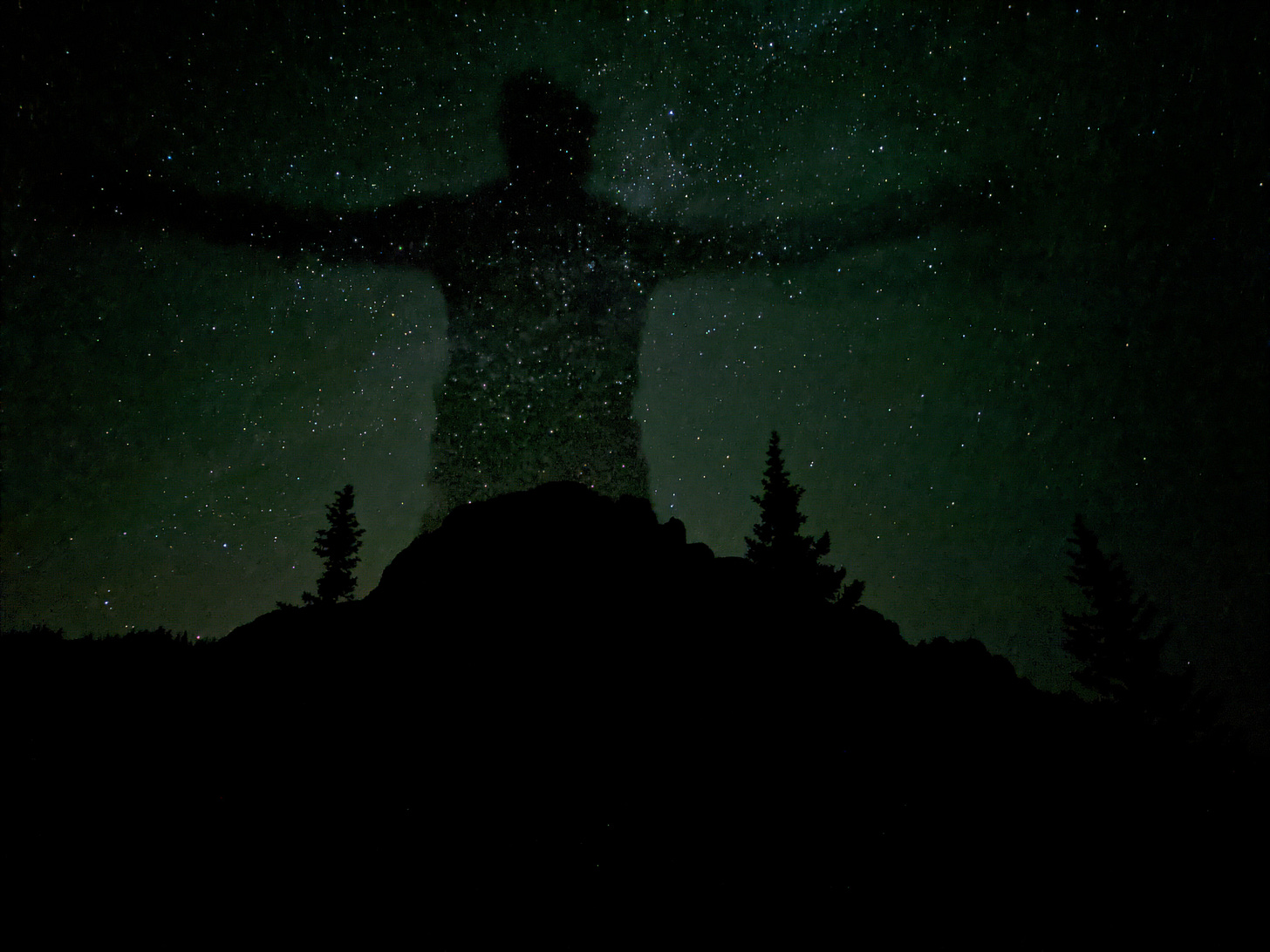Just a quick reminder before today’s post that I’ve discounted access to exclusive content again! If you want to read about The Unfamiliar Movement Project, join our private chat, and (fingers crossed) be paid to write a guest post, consider supporting The Well-Lived Life!
“You will come to know things that can only be known with the wisdom of age and the grace of years. Most of those things will have to do with forgiveness”
-Cheryl Strayed.
In one of the parables that I still hold dear long after leaving the church, Jesus sees a woman who’s about to be stoned for the crime of adultery. Men surround her, holding their carefully chosen rocks, desperate to transform this woman’s body into lifeless flesh, drooling over the joy of following the rules when those rules allow them to act like animals.
Jesus places himself in their path and draws something in the sand as they go red in their faces and rant him at about regulations and order and society. He stands up and says “let he who is without sin cast the first stone.” Unable to argue with that logic and ashamed, the men slink off back to their homes where they can eagerly await the next chance to smash someone’s face with society’s approval.
That sort of behavior is what Jesus was killed for. He was a man holding mirrors up to mobs, showing them how snarling and animalistic they really were.
Forgiveness is the only option we have left
Our biggest person-to-person crisis in the U.S. is one of forgiveness. For all our talk of trauma recovery, communication, and truth-speaking, we still have not figured out how to forgive those who caused us pain for not having been perfect before they went around causing suffering. We can’t forgive our opposing political voters, whom we believe we perfectly understand, yet have never met.
We’ve discovered that trauma leaves deep scars, created drugs to heal battered parts of the mind, and lept light-years ahead in the realm of talk therapy. Yet for all our scientific achievements, we’ve made no strides in the field of forgiveness.
We just have more widespread methods of arguing who’s right and who’s wrong. Our capacity to forgive is no more advanced than it was thousands of years ago. We still act like children, pouting in corners, pointing fingers, saying “why should I have to forgive? They hurt ME!”
As it has to all that have come before, a still, small voice whispers to each of us:
Are you proud that you’ve kept your pain? Is it so different from the pain of your rival? So special? So unique? Does it make you feel big and important?
Where I learned empathy for the other
Rifle is a less-than-10,000 person town on the fringes of Western Colorado, one of the last before you arrive in Utah. If you need to shop, you’ve got Walmart, City Market, a seemingly ridiculous number of auto parts stores for such a small population of people, and several small tortillerias.
The busiest restaurants on 3rd (the town’s Main Street) are Jalisco and Shooters Grill, right across the street from each other, dueling, diametrically opposed. Jalisco is your average Mexican restaurant. Shooter’s Grill is the brainchild of Lauren Boebert, the far-right congresswoman who dropped out of high school at sixteen and eventually started a cafe/restaurant where all of the waitresses carry guns. Rifle, Colorado is the kind of place where such a business thrives.
I moved to Rifle in August of 2020 to teach English as a Second Language to the children of the migrant population, trying to continue my service after my abrupt covid-related evacuation from my Peace Corps post in Nepal.
I remember a salsa/karaoke night at Jalisco (mid-covid). I looked up and across the street from my outdoor table where I was surrounded by singing and merriment to see Shooters’ only customer, a grizzled hard old man, glaring out at Jalisco from his booth, furious at the audacity of these immigrants who’d come to his town to have fun.
That night, I finally understood the prison of hate. That man was my neighbor, a man who’d raised four kids as a welder. He’d lived in Rifle since the sixties. When Biden won the election, he put up a sheet wood sign outside his double-wide with “cheating is not wining” written in sharpie.
Imagine living in that man’s head. You have a trade, a valuable skill you’ve worked at year after year. It’s made your hands hard, but it’s been honest.
Then your money starts to go a little less far, and things start to get tight. It doesn’t make any sense. You could always make ends meet before. You’re not sure how you’re going to be able to retire, you might have to work as a Wal-mart greeter in your old age.
One fine day, an opportunistic demagogue comes along explains it all to you. Your dollars are worn threadbare because of the newcomers to your town, and the people who support policies that bring them. It is now your responsibility to hate all of these people. And if you stop hating, the demagogue says, if you stop hating for even a second, they’re going to overrun your freedoms and take what little you have left.
The day I moved in and introduced myself, I told him that I love to cook and that I was about to go buy pots and pans for my new apartment. He turned right around, dug in his kitchen cabinets, and gave me a full set of stainless steel cookware and an old pressure cooker that he and his wife weren’t using. His wife dropped food by my house several times, trying to make sure I felt welcomed and stayed fed on my meager first-year teacher’s salary. She’d often offer up some statement like “George Soros is paying young people to stir up trouble again, you know” I’d always say something noncommittal, thank her for the food, and change the subject.
She was angry and sad at the state of her country. We had that in common.
We either harness this anger… Or learn to talk to each other
In a recent, joke-filled conversation with a friend, I said “Man, forget wind power. Anger is the renewable resource we need to be able to harvest. Pure, unfiltered American anger.”
He replied (keep in mind that he’s British, has never set foot on American soil and this is his understanding of American politics):
“Absolutely mate! Put 15 social justice Warriors, 10 QAnon believers, and 7 hardcore Christians in a room on some stationary bikes with their Facebook feeds up and tell them they have to out pedal each other for justice and freedom, you could power the whole Midwest for six months!”
As silly as that example is, if those groups were really put in that scenario, that’s approximately what would happen. Convinced that their anger was completely righteous, all would pedal and shout themselves to exhaustion to avoid the basic indignity of having a conversation with someone they disagreed with.
In a recent podcast episode about the John Scopes “Monkey Trial,” historian Jill Lepore makes the statement that ‘there are no winners in a culture war.’ It’s one of the only blanket political statements I’ve heard in the last five years that rings true. As long as we stay in these digitally fueled echo chambers pointing fingers at each other and pouting like children, no one wins. It’s just battlefields and casualties until we talk to each other like civilized people.
Because that’s what war is, at the end of the day. War is impassioned speeches and bitter casualties and righteous rage until both sides have lost so much that it finally becomes necessary to sit and talk to each other like we should have at the very beginning.
Forgiveness means understanding, in a real way, that those who oppose you are guided by a moral compass similar to your own. Not monsters. Not sociopaths. Humans, like you.
Forgiveness is all that can ever and all that has ever saved us from ourselves.
At its most fundamental level, forgiveness means accepting that the people who disagree with you, who act in ways that you find distasteful, are driven by the same foundational desire to live moral lives that you are.
No matter how misled you believe them to be, your average hippies and rednecks and liberals and conservatives and bible thumpers and heathens want the same things out of life as you do. They want to live safely and create safe lives for their families. They want to do good things for their communities. They want to hope for a better future and then take steps towards it.
What that safety, goodness, and hope look like in practice are the responsibilities of the people of a democracy to decide together. We’ve lost sight of that compromise and cooperation because we’re so busy shouting at each other.
Until we stop talking about how monstrous the other side is, until we can learn how to ground our political conversations in our common humanity, until we can forgive, we go nowhere, and everything goes down with us.













Share this post